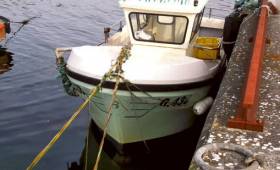Displaying items by tag: Tawin Island
MCIB Calls For Update On Best Practice For Lifejackets
#MCIB - Marine investigators have recommended that fishermen be reminded of best practice for wearing PFDs while on the water.
That’s the main recommendation from the Marine Casualty Investigation Board’s (MCIB) report on an incident in Galway Bay last September that took the life of Patsy Kelly.
As previously reported on Afloat.ie, the body of the local lobsterman was recovered off Salthill hours after his boat was found empty at Tawin Island on 7 September 2016.
Kelly had set out earlier that morning at 6am from Ballinacourty on his boat Loch Corrib II to retrieve a string of lobster pots.
The boat was noticed stationary in the water around lunchtime by another vessel fishing in the area, which approached to find it unmanned with the engine running.
It’s believed that Kelly suffered some sort of collapse while attempting to untangle his string of pots, which caused him to enter the water.
Kelly’s body was recovered more than four nautical miles from his vessel after 6.30pm that evening.
He was found to be wearing his PFD but underneath an oilskin smock, which would have meant no access to the switch for the lifejacket’s locator beacon.
The MCIB report also found that the PFD, while it inflated, was five months overdue for a service.
The full report into the Loch Corrib II incident is available to download below.
























































